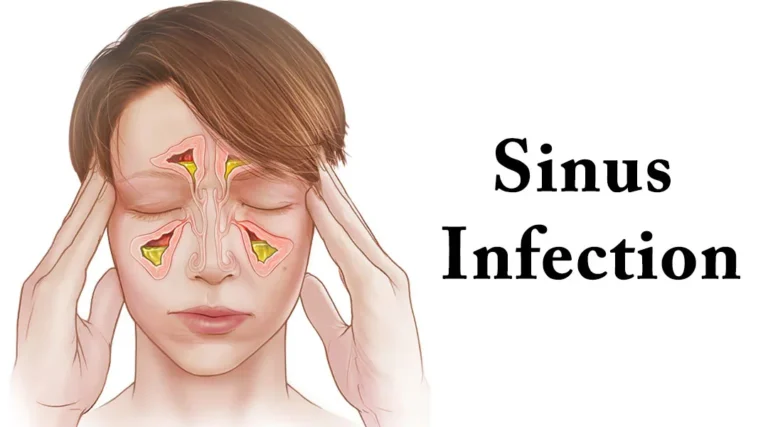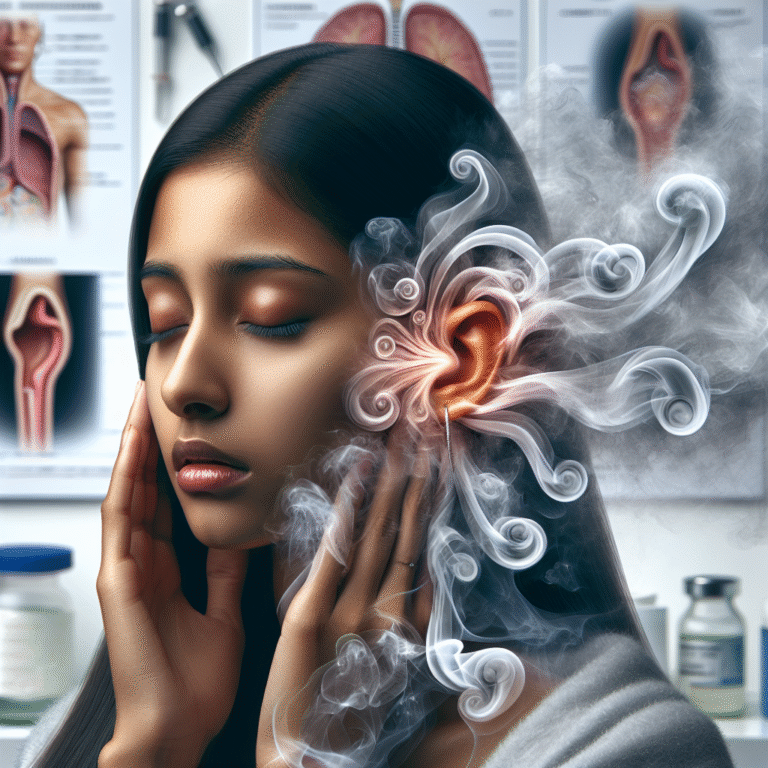Sinus pressure is an uncomfortable feeling of fullness or pressure in the sinus cavities (air-filled spaces within the facial bones). Without treatment, it can get worse and interfere with day to day function. However, medications can treat a sinus pressure but there are several home remedies such as steam inhalation and saline rinse that provide relief and make one recover faster.
This article is for you if you or someone you know has sinus pressure often. Then let’s find some simple and effective ways to get relief from sinus pressure without side effects. Before anything, we have to know the basics.

What is Sinus Pressure?
Sinus pressure is the irritation that has the uncomfortable sensation of pressure occurring within the sinus cavities (sinuses) due to colds, allergy, and sinus infections (sinusitis). They are air filled spaces within the bones of the skull and face called the paranasal sinuses. They play various roles, such as:
- Lightening the weight of the skull
- Humidifying and warming inhaled air
- Enhancing voice resonance
- Protecting vital structures during facial trauma
When the mucous membrane lining these sinuses becomes swollen due to allergies or infections, it can lead to discomfort, nasal congestion, and sinus pressure.
Symptoms of Sinus Pressure
Some common symptoms of sinus pressure include:
- Headaches
- Facial pain or tenderness
- Nasal congestion
- Difficulty breathing through the nose
- Runny nose

Home Remedies to Relieve Sinus Pressure
Here are 10 effective home remedies to help reduce sinus pressure naturally:
1. Steam Inhalation
Steam inhalation is a simple and effective way to ease sinus pressure. Inhaling moist air can help hydrate your sinuses, thin mucus, and reduce congestion.
How to do it:
- Fill a bowl with hot water.
- Place a towel over your head, lean over the bowl, and breathe in the steam for 10-15 minutes.
2. Saline Nasal Rinse
A saline nasal rinse can help clear nasal passages by loosening thick mucus and reducing inflammation.
How to make a saline solution:
- Mix 1 teaspoon of salt and ½ teaspoon of baking soda in 1 cup of distilled warm water.
- Use a neti pot or saline spray to flush the solution through your nasal passages.
3. Warm Compress
Applying a warm compress to the face can improve blood circulation, reduce swelling, and alleviate sinus pain.
How to use it:
- Use a warm, damp cloth and place it over your forehead, nose, and cheeks for 10-15 minutes.
4. Essential Oils Massage
Essential oils like eucalyptus, peppermint, lavender, or tea tree oil have anti-inflammatory and antibacterial properties. They can provide relief when massaged onto the affected area.
How to use:
- Dilute a few drops of essential oil with a carrier oil (like coconut or almond oil) and gently massage it over your sinuses.
- Alternatively, add essential oils to a diffuser and inhale the vapors.
5. Acupressure
Acupressure involves applying pressure to specific points on the face and body to relieve sinus congestion and pain.
Key points to target:
- Between the eyebrows (Yintang)
- On either side of the nostrils (Li20)
- Base of the skull (B12)
6. Stay Hydrated
Drinking plenty of water helps thin mucus and keeps your sinuses moist, reducing pressure.
Tips:
- Aim for 8-10 glasses of water a day.
- Include herbal teas, broths, and soups for added hydration.
- Avoid caffeine and alcohol, which can dehydrate you.
7. Maintain Good Sleep Habits
Proper sleep can promote healing and reduce sinus discomfort.
Tips for better sleep:
- Sleep on your back with your head elevated to improve drainage.
- Use an extra pillow to keep your sinuses clear while you sleep.
8. Use a Humidifier
Dry air can irritate nasal passages and worsen sinus pressure. A humidifier adds moisture to the air, keeping your sinuses hydrated and reducing inflammation.
Pro tip:
- Clean your humidifier regularly to prevent mold or bacteria buildup.
9. Eat Spicy Foods
Spicy foods like chili peppers, garlic, ginger, and wasabi can help clear nasal passages and promote mucus drainage.
Suggestions:
- Add spices to soups like tomato soup, rasam, or chicken broth for maximum benefit.
10. Rest and Relax
Proper rest gives your body time to heal. Limit screen time, practice deep breathing, and take short naps during the day to support recovery.

Things to Avoid When Dealing with Sinus Pressure
While treating sinus pressure, avoid the following:
- Breathing cold or dry air
- Smoking
- Dairy products (for some individuals)
- Highly processed foods
- Overusing nasal decongestant sprays
- Swimming in chlorinated pools
- Ignoring persistent symptoms
When to See a Doctor for Sinus Pressure and Pain
While home remedies are effective for mild cases, it’s important to consult a doctor if you experience:
- Symptoms lasting more than 10 days
- Severe or worsening symptoms
- Persistent fever
- Blurred vision or eye pain
- Severe toothache
- Unusual nasal discharge (bloody or greenish)
- Difficulty breathing
Conclusion
While sinus pressure can be uncomfortable, there are home remedies and lifestyle changes that may help relieve that pressure naturally. There are a few ways on how to ease symptoms and help recover, including steam inhalation, hydration, warm compresses and proper rest. If your symptoms are severe or persistent, though, it’s best to see a doctor. The earlier someone finds out they are having a baby with Down Syndrome, the less likely they will have complications and be able to get back to feeling their best.
Consult an ENT specialist if you would like more helpful tips on how you can manage your sinus problems or explore effective treatment options.
Read about: How to Fix Sinus Problems: Effective Treatments and Solutions
Also read about How Snoring Disrupts Your Health and How to Find Relief







